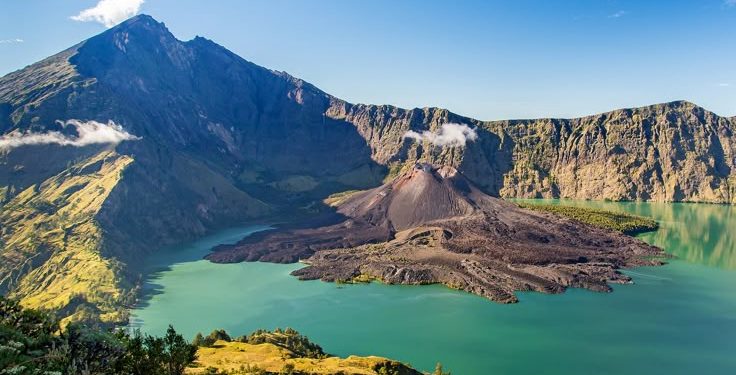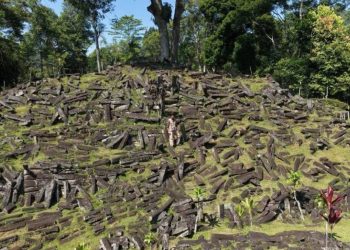Jakarta, Indonesia Sentinel — Indonesia has designated Mount Rinjani in Lombok, West Nusa Tenggara, as a pilot site for a nationwide “zero waste” initiative across its national parks.
The policy was announced by Forestry Minister (Menhut) Raja Juli Antoni. Minister Raja urged visitors and hikers to fully embrace the sustainable policy aimed at eliminating waste in the mountainous region.
“We are now seriously implementing the Rinjani Zero Waste initiative,” said the minister in a statement, cited from Antara on Tuesday (May 19). “Every item hikers bring to the mountain will be logged, there’s a form listing all belongings, and everything will be counted before departure.”
The policy is designed to preserve the natural beauty and cleanliness of Mount Rinjani while ensuring the safety of all visitors, he said. It is part of broader efforts to promote eco-friendly and sustainable tourism in the country’s national parks.
“The zero-waste hiking rule isn’t just a recommendation, it’s a strict and measurable policy,” Raja emphasized.
Zero Waste Policy
According to a post on Mount Rinjani National Park’s official Instagram account, the park’s zero-waste initiative is rooted in the “Leave No Trace” philosophy, requiring every hiker take full responsibility for their trash.
As part of the policy, park officials from the Mount Rinjani National Park Authority (TNGR) meticulously document each item carried up the mountain by hikers, including the quantity, type, and packaging of all belongings.
Single-use plastics are strictly prohibited under the new guidelines. All food and beverages must be packed in reusable, eco-friendly containers, such as durable lunch boxes and refillable bottles.
The program follows a “pack in, pack out” system, which mandates that everything brought to the summit must be returned in the same condition. Ensuring that nothing can be left behind.
Minister Raja warned that there will be serious consequences for hikers who violate the policy.
“Those who fail to account for all their items upon descent will face strict penalties, including fines of up to Rp5 million (around $310),” he said. He added that any hiker caught leaving behind trash will be blacklisted from the park for five years.
Therefore, Minister Raja urged the public to prepare thoroughly before embarking on a trip to Mount Rinjani. “With this initiative, we hope Rinjani becomes known not just for its beauty, but also for its cleanliness,” he said.
Read Also:
Two Geoparks in Indonesia Join the UNESCO Global Geoparks Network
Zero Accident Policy
In addition to the zero-waste policy, the ministry is also implementing a “zero-accident” policy on the mountain to reduce the risks associated with unprepared or uninformed hikers.
“Climbing a mountain is not like going to a shopping mall because your friends invited you,” said Raja. “It requires physical, mental, and logistical preparation. Never take it lightly.”
He stressed that trail safety and public information must be improved by park management, and that all danger zones along the hiking routes should be clearly marked with warning signs.
Minister Raja concluded that both policies of zero waste and zero accidents would be enforced seriously at Mount Rinjani and used as a model for other national parks throughout Indonesia.
“We are implementing the zero waste and zero accident policies on Rinjani with full commitment. These initiatives will serve as a benchmark for all national parks in the country,” he said.
(Raidi/Agung)
























